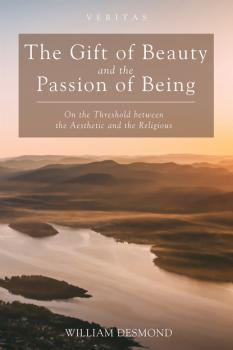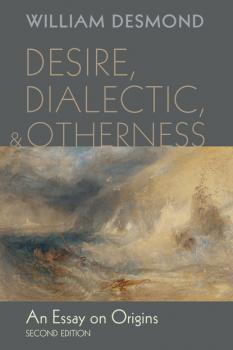ТОП просматриваемых книг сайта:
William Desmond
Список книг автора William DesmondАннотация
This book gathers a set of reflections on the gift of beauty and the passion of being. There is something surprising about beauty that we receive and that moves the passion of being in us. The book takes issue with an ambiguous attitude to beauty among some who proclaim their advanced aesthetic authenticity. Beauty seems bland and lacks the more visceral thrill of the ugly, indeed the excremental. We crave what disrupts and provokes us, not what gives delight or even consoles. By contrast, attention is given to how beauty arouses enigmatic joy in us, and we enjoy an elemental rapport with it as other. Surprised by beauty, our breath is taken away, but we are more truly there with the beautiful when we are taken outside of ourselves. We are first receivers of the gift of surprise and only then perceivers and conceivers. My attention to the passion of being stresses a patience, a receptivity to what is other. What happens is not first our construction. There is something given, something awakening, something delighting, something energizing, something of invitation to transcendence. The theme is amplified in diverse reflections: on life and its transient beauty; on soul music and its relation to self; on the shine on things given in creation; on beauty and Schopenhauer's dark origin; on creativity and the dynamis in Paul Weiss's creative ventures; on redemption in Romanticism in the thought of Stanley Cavell; on theater as a between or metaxu; on redeeming laughter and its connection with the passion of being.
Аннотация
Many philosophers since Hegel have been disturbed by the thought that philosophy inevitably favors sameness over otherness or identity over difference. Originally published at a time when the issue was not so widely discussed in the English-speaking world, William Desmond here offers a constructive and positive approach to the problem of difference and otherness. He systematically explores the question of dialectic and otherness by analyzing how human desire inevitably seeks immanent wholeness in a manner that opens it to irreducible otherness. He faces the difficulties bequeathed to Continental thought by Hegelian dialectic and its tendency to subordinate difference to identity, whether appropriately or not. Unlike many recent critics of Hegel, he argues that we must preserve what is genuine in dialectic. Granting the positive power of dialectic, Desmond offers his first articulation of a further philosophical possibility–what he terms the Metaxological–a discourse of the «between,» a discourse doing justice to desire's search for wholeness without any truncating of its radical openness to otherness. In a wide-ranging yet unified discussion, Desmond tackles such issues as the nature of the self, the ambiguous restlessness and inherent power of being revealed by human desire, desire's relation to transcendence, its openness to otherness in agapeic good will and in relation to the sublime as an aesthetic infinitude. Finally, Desmond brings this metaxological understanding to bear on the metaphysical question of the ultimate origin.
This book is a remarkable introduction to Desmond's metaxological philosophy, prefiguring many of the ideas with which his later thought is associated. This second edition contains a substantial new preface and an afterword to each chapter in which Desmond reflects on the material from the standpoint of his current thinking.
This book is a remarkable introduction to Desmond's metaxological philosophy, prefiguring many of the ideas with which his later thought is associated. This second edition contains a substantial new preface and an afterword to each chapter in which Desmond reflects on the material from the standpoint of his current thinking.


